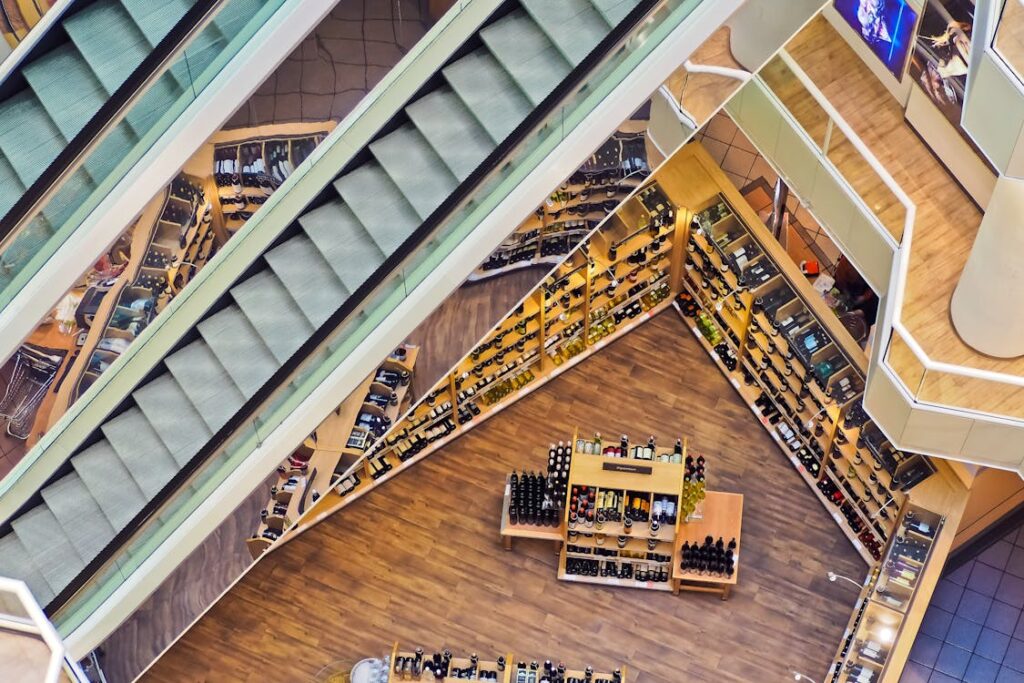Retail Snapshot in Hungary
This is an old post. Information may be outdated.

The Hungarian grocery retail market is highly competitive, with the five largest companies dominating the market. These companies are:
Tesco: Tesco is the largest grocery retailer in Hungary, with a market share of 22%. The company has been present in Hungary since 1994 and has been the market leader ever since. Tesco has 200 stores in the country and employs more than 20,000 people.
Lidl: Lidl is the second largest grocery retailer in Hungary, with a market share of 19%. The company has been present in Hungary since 2004 and has been growing dynamically ever since. Lidl has 180 stores in the country and employs more than 5,000 people.
Spar: Spar is the third largest grocery retailer in Hungary, with a market share of 11%. The company has been present in Hungary since 1990 and has been growing steadily ever since. Spar has 360 stores in the country and employs more than 9,000 people.
Auchan: Auchan is the fourth largest grocery retailer in Hungary, with a market share of 8%. The company has been present in Hungary since 1998 and has been growing dynamically ever since. Auchan has 19 stores in the country and employs more than 5,000 people.
CBA: CBA is the fifth largest grocery retailer in Hungary, with a market share of 7%. The company has been present in Hungary since 1992 and has been growing steadily ever since. CBA has 460 stores in the country and employs more than 10,000 people.
Note: CBA stores are a network of independent stores operating under a franchise system.
Retail product turnover increased by 5% in nominal terms in 2023 to HUF 4,500 billion. However, taking into account inflation, turnover decreased by 2%. This means that consumers bought fewer goods in 2023 than in 2022.
Inflation in 2023 was 14.5%, which means that prices increased by an average of 14.5%. This high inflation rate significantly affected household consumption, as consumers were able to buy less for the same amount of money.
The following factors influenced the development of retail product turnover:
Inflation: The high inflation rate reduced household purchasing power.
Incomes: Household incomes increased in 2023, but were unable to compensate for inflation.
Consumer confidence: Consumer confidence was low in 2023, which held back purchases.
Savings: In 2023, households used their savings to finance purchases.
In order to stimulate household consumption and reduce inflation, the Hungarian government introduced price controls on basic foodstuffs in the retail sector in 2023.
In October 2023, the government announced that it would introduce a sector-wide price cap on food until December 31, 2023. This means that retailers cannot raise food prices above the October 15, 2023 price level.
The impact of government price cuts is mixed. On the one hand, the discounts help households to compensate for the rising cost of utilities and food. On the other hand, the discounts can distort the market and lead to shortages.
The government price cuts will remain in effect in 2024. The government will continue to monitor market developments and take further measures if necessary to help the population.
The retail special tax is a tax that must be paid by companies that carry out retail activities. The tax was introduced in 2022 with the aim of increasing budget revenue and reducing inflation.
No tax is payable up to a net turnover of HUF 500 million, 0.15% of net turnover between HUF 500 million and HUF 30 billion, 1% of net turnover between HUF 30 billion and HUF 100 billion, and 4.5% of net turnover above HUF 100 billion.
Inflation: The high inflation rate reduced household purchasing power.
Incomes: Household incomes increased in 2023, but were unable to compensate for inflation.
Consumer confidence: Consumer confidence was low in 2023, which held back purchases.
Savings: In 2023, households used their savings to finance purchases.
How retail sector players have tried to adapt to difficult market conditions:
Promotions and discounts: Companies have advertised promotions and discounts more frequently to attract customers.
Private label products: Companies have expanded their range of private label products, which are generally cheaper than branded products.
Online sales: Companies are increasingly focusing on online sales, which offer a more convenient and faster shopping experience for customers.
The outlook for the retail sector in 2024 is mixed. Inflation is expected to remain high in 2024, which will continue to put pressure on household purchasing power. Incomes are expected to rise, but will not be able to compensate for inflation. Consumer confidence is expected to improve, which could boost purchases.
At the same time, there are government efforts to change the ownership structure of food retail companies in order to increase the Hungarian ownership share.